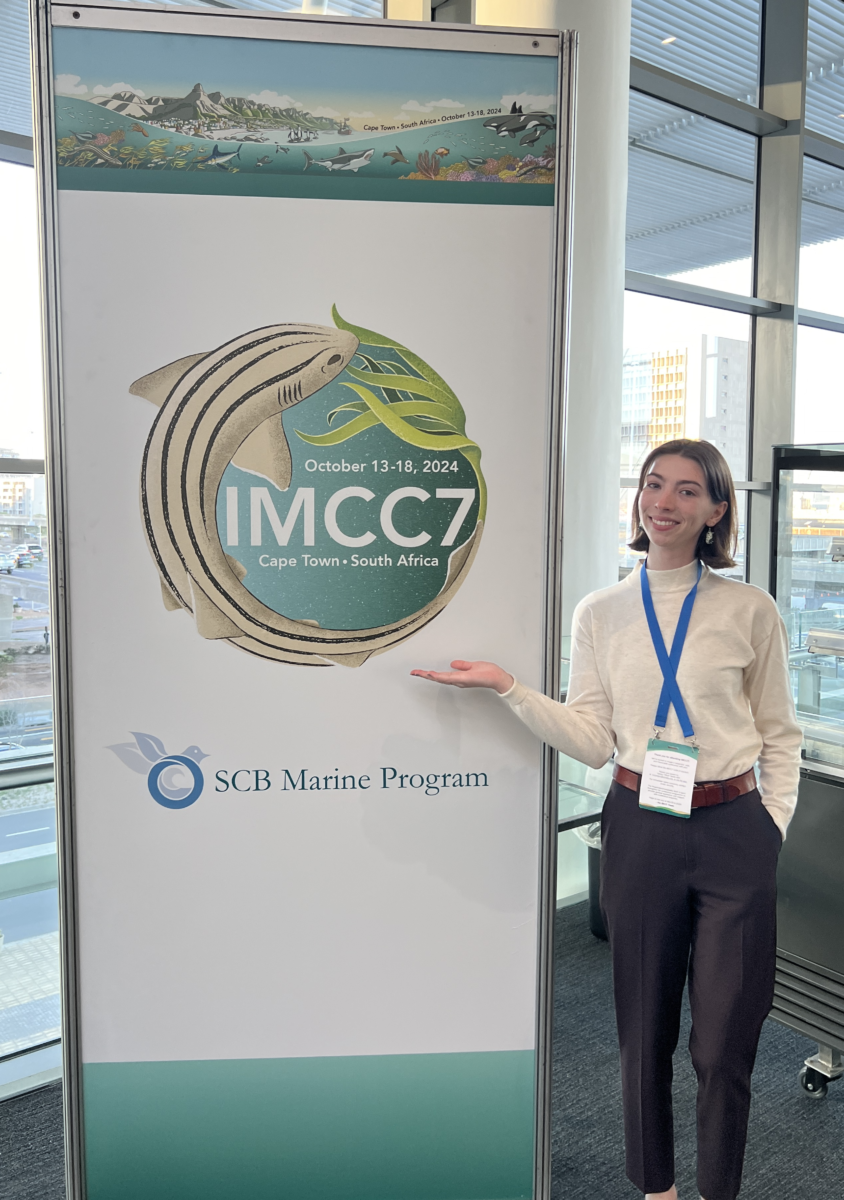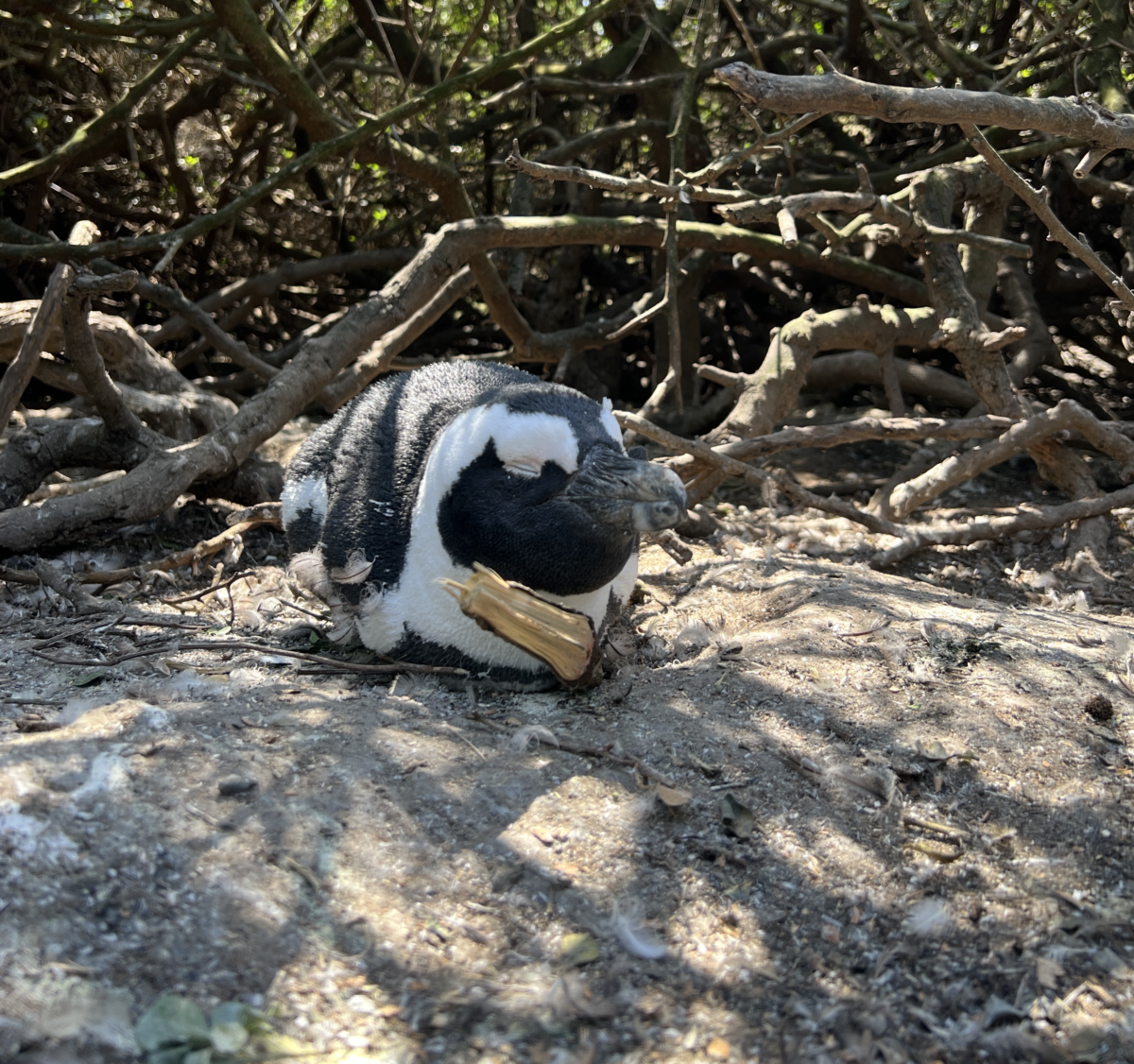I attended the 7th International Marine Conservation Congress (IMCC7) in Cape Town, South Africa. This conference brought together over 800 delegates from 72 countries under the theme of “Make Marine Science Matter.”

I started the conference with a workshop about integrating social science into marine conservation, led by Human Nature, a company that recognizes people as central to conservation and is dedicated to helping natural scientists engage in social science. As someone who has always been interested in utilizing social science within marine conservation to engage people more effectively, this workshop was very enlightening. One of the most impactful things I took away from this workshop was that many natural scientists (and others) are doing social science without social science training, which can create more harm than good. Interviews with stakeholders and communities have become more common practice within research, and many conduct these interviews without formal training. Another takeaway for me was that there is a wide range of different qualitative methods–beyond interviews–that can be used in conservation social science. This workshop gave me a great overview of the applications of social science and left me inspired to pursue future training in these methods.
I also learned a lot about South African conservation measures and the history of conservation in the country. One of the talks I attended was about tracking African coelacanths using environmental DNA (eDNA), where the DNA in water samples is used to detect species in an area. The researchers also found that some species of sponges were effective indicators for detecting the presence of these ancient fish in the area. Read more about this exciting research here.
I also learned more about the now critically endangered African penguin and the management of this iconic species. After the conference, the species was shifted from an endangered status to a critically endangered status, underscoring the importance of conservation. With 97% of the historic population lost, experts warn that if nothing changes, the species could go extinct in the next 10 years. To learn more and see how you can help, read here.

I also learned more about the historical context of conservation in South Africa. During apartheid, national parks and many public beaches were only accessible to white people. Throughout the conference, there were several sessions on creating access and remedying these historical exclusionary practices.
What I really enjoyed about this conference was the number of sessions and talks that had to do with the human dimensions of conservation and how we can best work with people and communities to advance conservation initiatives. I attended sessions with topics from indigenous-led marine conservation in Fiji, to developing an art exhibit to encourage marine conservation to community-driven mangrove restoration in Madagascar. It was exciting to be immersed in this global community of conservationists. I also attended workshops on decolonizing marine conservation and co-creating conservation efforts with indigenous and local communities. I left feeling inspired by the work being done and excited to continue pursuing equitable, sustainable solutions in my own marine conservation work.
Thank you to the Our World-Underwater Scholarship Society and our sponsor Rolex for making this scholarship experience possible. I would also like to thank Reef Photo and Video, Nauticam and Light and Motion for my underwater camera setup as well as Aqualung, Fourth Element, Suunto, Halcyon, and DUI for my diving equipment.